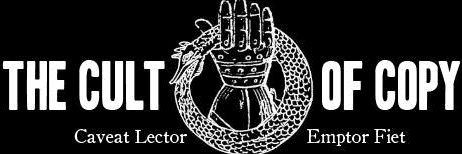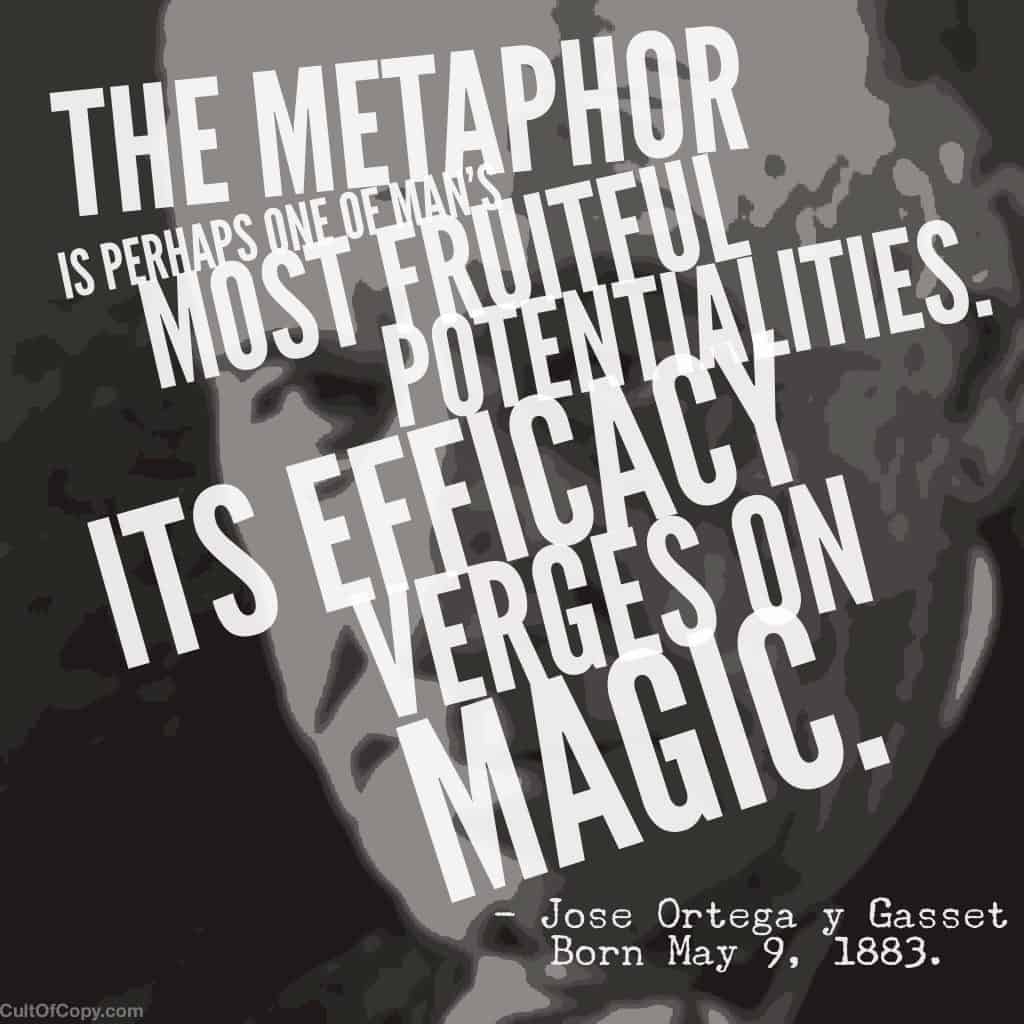“The metaphor is perhaps one of man's most fruitful potentialities. Its efficacy verges on magic, and it seems a tool for creation which God forgot inside one of His creatures when He made him.” – Jose Ortega y Gasset, Born May 9, 1883.
Persuasive writers are basically in the business of manipulating minds through metaphor.
If your reader doesn't understand a concept you need them to understand, you can illuminate it through metaphor…
“The brain is a computer.”
If you need your reader to reference a certain emotion, you can summon it and agitate it via simile…
“His frustration built like the pressure in a soda can kicked down a flight of stairs.”
If you want to get a prospect to act a certain way, you can project that identity onto them with a metaphor…
“You're Han Solo, and Solo shoots first and asks questions later.”
Entire books have been written about the power and ubiquity of metaphor. We use them constantly. Many without realizing it. Our fundamental understanding of the universe is basically a series of metaphors layered on top of one another.
Which is why they are so powerful. Metaphor is the machine language that the psyche really is programmed in.
If you know the metaphors present in the reader's mind, you can begin to deconstruct them, change their associations, and then build them back up to suit your purposes.
Some useful metaphors for persuasive purposes:
The rose – beautiful, but delicate, and connected to vicious thorns.
The rocket – which rises to a great height, but must eventually fall back to earth after fulfilling its purpose.
The fire – which burns and destroys and kills, but also clears the old to make way for the new.
The mountain – remote, difficult, dangerous, yet not unconquerable by the determined climber.
The river – treacherous and invincible when you fight the current, but capable of carrying you far with ease when you ride the current instead.
Millions more are out there for you. Practice pulling them out through observation. How is one thing like another thing?
Pick weird ones. How is a politician like a shoe? How is business like a boat? How is money like the jungle? How is love like a storm? How is competition like wine?
Challenge yourself to go deeper. Make metaphors that operate on multiple comparisons and contrasts.
The better you get at it, the more people will have these little addictive “aha moments” when they read your work. And the better you'll become at delivering them on demand.
P.S. I know I use simile above, but a simile is just a kind of metaphor, ya pedant!

